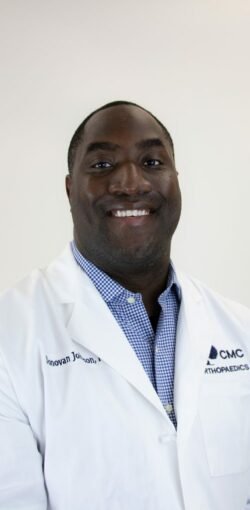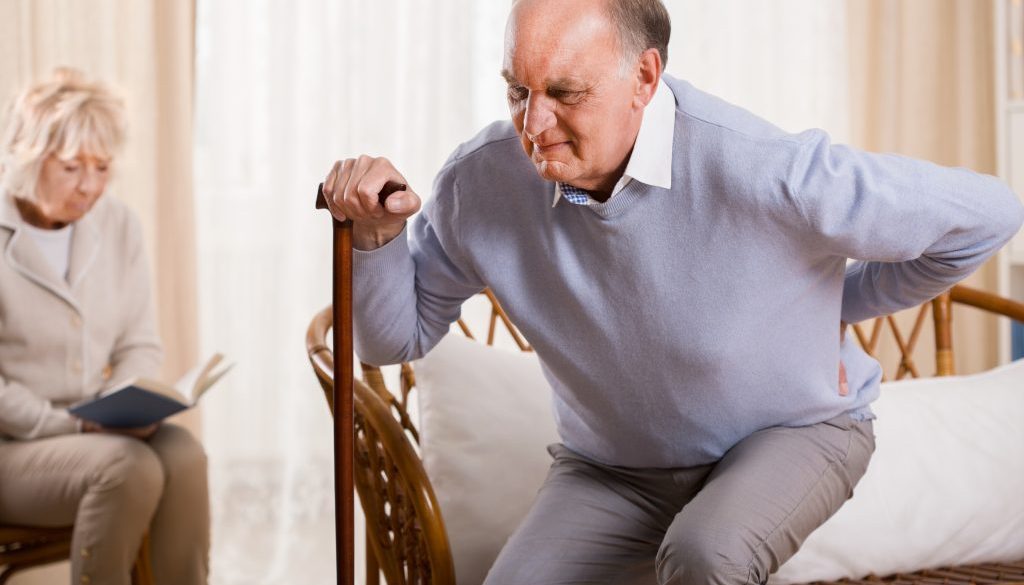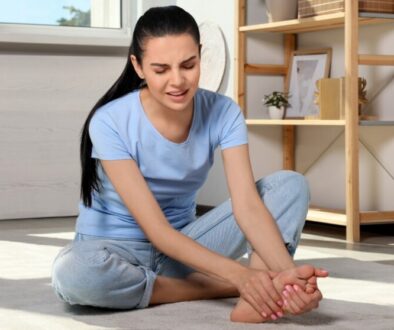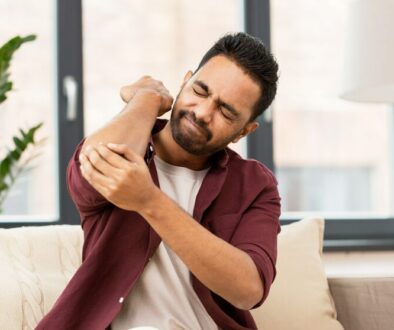Exploring the Ins and Outs of Hip Pain
Life can be a painful struggle for people living with hip pain. Beyond the constant hurt, it can affect many aspects of your daily routine. Think about the time it takes to get in and out of your car. The instances you avoided taking the stairs or skipped one of your favorite activities. Watching your kids or grandchildren play instead of playing with them. Maybe it’s time to get to the bottom of your hip pain and take back your life.
Why does my hip hurt?
Hip pain is all too common and can affect people in all age groups and walks of life. The hip is a complex weight-bearing ball and socket joint that also includes surrounding muscles, tendons, and ligaments. Due to the complexity of the anatomy of the hip, there are many things that could contribute to your hip pain. A thorough examination and imaging tests like X-rays and CT scans can help define the root cause of your pain.
What can cause hip pain?
Arthritis Arthritis is the most common cause of daily pain in the hip causing stiffness and tenderness in the joint as well as difficulty walking. This is all the result of inflammation caused by the breakdown of cartilage and the rubbing of the hip bones against one another. Aging, obesity, trauma, and being highly active can increase your chances of developing arthritis.
We’re Here for You!
A Better Life is a Click Away.
Bursitis There are fluid-filled sacs called bursae that keep the tendons and muscles in the hip from rubbing against bone. When these become inflamed it can cause pain in the buttocks and on the outside of your hip. Many factors can cause bursitis, including hip injuries, previous hip surgery, overuse of the joint, posture, leg length, and conditions like Rheumatoid arthritis.
Tendonitis One of the most common causes of acute hip pain is caused by inflamed tendons. Tendonitis is often caused by the strain from too much exercise or repetitive activities like kicking a ball. People with tendonitis will typically experience tenderness in their hip flexor and groin.
Muscle strain Another hip condition commonly caused by overuse is muscle strain. This happens when the muscles are stretched or torn. This can cause pain, swelling, muscle spasms, bruising, and inflammation that can typically be treated with rest, ice, elevation, and compression unless the injury is more severe.
Hip fractures Hip fractures are most common in older adults and those with osteoporosis but can be the result of a traumatic accident for a person of any age. People with a hip fracture will experience sudden severe pain, an inability to put weight on the leg, difficulty getting up or walking, bruising, and swelling. Hip fractures will more than likely need to be treated with surgery and physical therapy.
What can I do about my hip pain?
At CMC Orthopaedics, once we get to the root cause of your pain then we can define a treatment plan to help you successfully manage it. For minor issues and injuries, rest, icing, anti-inflammatories, and some physical therapy may be all you need to return to normal. However, more serious conditions, such as arthritis and fractures could require a more extensive treatment plan or surgery.
Our fellowship-trained orthopedic surgeons are here to assess your needs and help you determine the best plan to kickstart a pain-free life for you.
To set an appointment, call 843-347-8041 or request an appointment today!

Donovan Johnson, MD
Fellowship trained in Sports Medicine: Shoulder, Elbow, Hip and Knee Arthroscopy at The Steadman Clinic, Steadman-Philippon Research Institute, Vail CO.
Board Certified in Orthopaedic Surgery by the American Board of Orthopaedic Surgery
Donovan Johnson MD completed his undergraduate education at Eastern Illinois University, where he received a bachelor’s degree in Biology and was a starter on their football team. He was an all-conference defensive end and linebacker. He earned his medical degree from Georgetown University located in Washington, D.C. Following medical school, Dr. Johnson completed his orthopedic surgery residency at Tulane University in New Orleans, LA. While in New Orleans, he served as head team-physician for two local high schools, both of which were state champions in their division. After residency, he completed a sports medicine fellowship at the world-renowned and prestigious Steadman Clinic located in Vail, CO. The Steadman Clinic is one of the most sought-after sports medicine fellowships for orthopaedic surgeons.
To set an appointment, call 843-347-8041 or request an appointment today!
Still wondering if joint replacement is right for you?
Answering some of the questions below may make it clearer for you. And if you’d like to talk through your pain management and surgical options with one of our experts at CMC Orthopaedics, submit this form with your information and we’ll be happy to reach out to you with an appointment.




